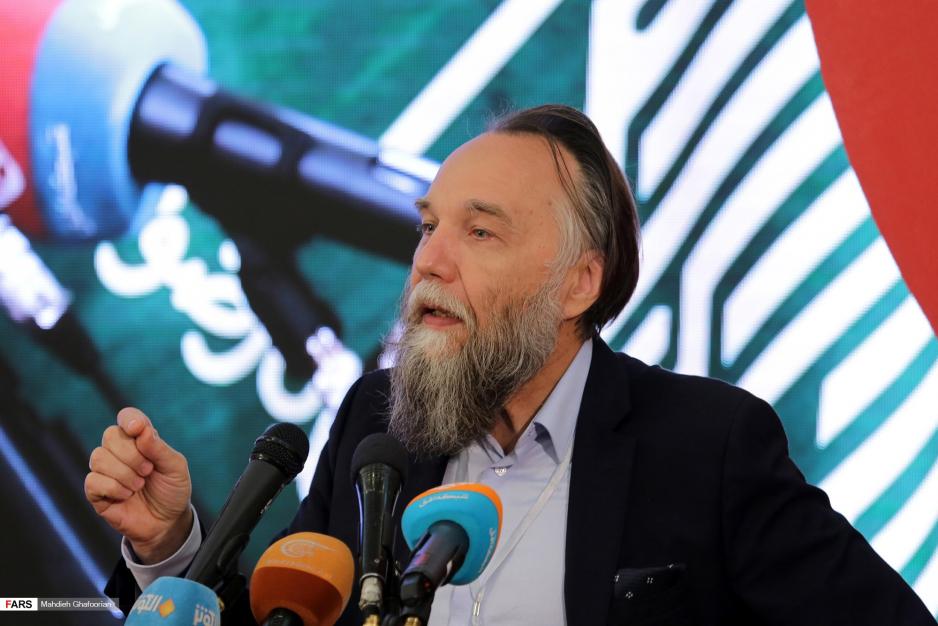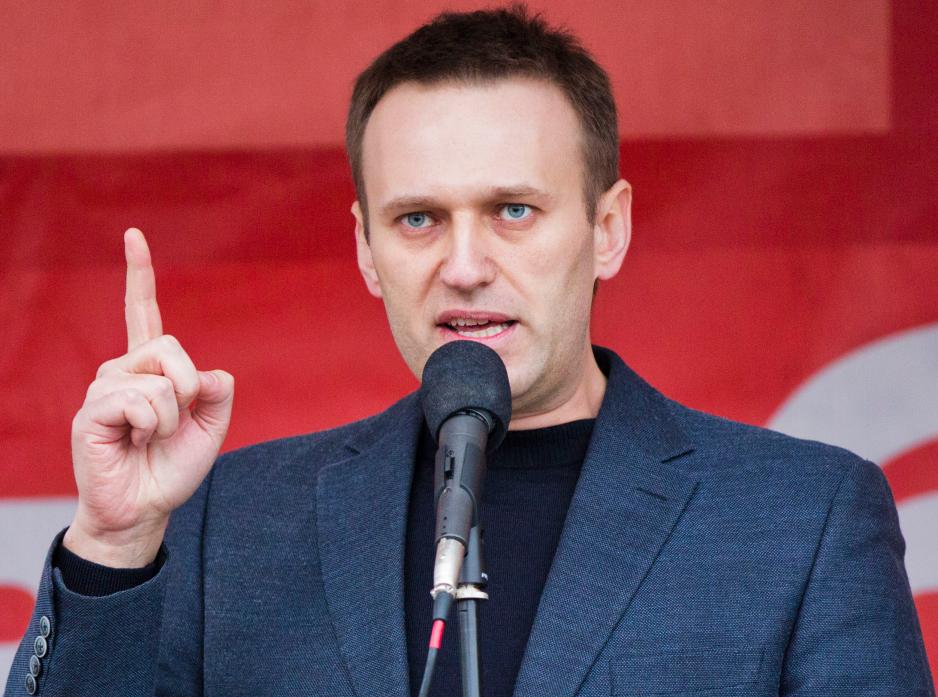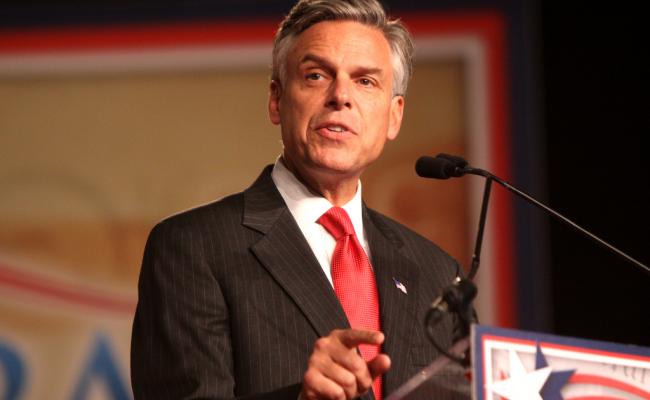Putin’s Geopolitical Policy Paradox in the Arctic

Vladimir Putin Attended the Plenary Session of the 5th International Arctic Forum; Wikimedia Commons;
Domestic pressures put Arctic policy at odds with narratives of Russian national identity.
The sacred space that Russia’s indigenous northerners have occupied in Putin’s Arctic mythology has been increasingly marginalized of late. Observers express concerns over the latest crackdowns by the Russian regime, including its recent efforts to silence indigenous rights groups in the Arctic.
The Arctic represents a unique component of Russian identity, and one that Putin has sought to highlight for the past two decades. But the ideas and narratives he has relied on to sell that vision to the Russian people are increasingly in conflict with his approach to Arctic development.
It’s not a legal issue. It’s a political one… There’s a big conflict of interest between corporations and indigenous people.
Just over a month ago, one of Russia’s most powerful indigenous rights advocacy groups was shut down over an alleged paperwork error. Rodion Sulyandziga, the director of the Center for Support Indigenous People of the North/Russian Indigenous Training Center, explained “It’s not a legal issue. It’s a political one… There’s a big conflict of interest between corporations and indigenous people.”
There have also been crackdowns on political protects, political rivals, and civil society at large. These crackdowns are not happening in a vacuum, and it’s important to understand that the Eurasianist ideology at the center of Putin’s Arctic vision is more at odds than ever with pressures mounting against the Putin regime.
Although Eurasianism has been a dominant and influential political philosophy in Russia for over a decade, it is not often discussed in mainstream Western cultures. The anti-Western sentiments expressed by Russian leaders and political pundits do not simply flow from an abhorrence of the West or hate for liberal values. Eurasianist beliefs, which often serve as the ideological basis for such sentiments, are far more nuanced than that.
“… Russia is not Europe, and that European norms, values and principles do not suit Russia, which will go its own way.”
Scholar Nadezhda Arbatova explains that Eurasianism “in essence simply means that Russia is not Europe, and that European norms, values and principles do not suit Russia, which will go its own way.”
She writes in her recently-published article that the concept originated in the early 1920s as a response to the horrors of the First World War and success of the Bolshevik Revolution.
Eurasianism faded in the Soviet years but began a revival amongst a handful of political philosophers shortly before the fall of the Soviet Union. One of the leading post-Soviet Eurasianist thinkers is former professor of sociology at MSU and well-known political pundit Alexander Dugin.

Alexander Dugin; Wikimedia Commons;
His most influential and important work is arguably Foundations of Geopolitics, published in 1997. Charles Clover writes in his excerpt from “The Unlikely Origins of Russia’s Manifest Destiny” that the text is “one of the most curious, impressive, and terrifying books to come out of Russia during the entire post-Soviet era, and one that became a pole star for a broad section of Russian hardliners.” Dugin’s work has even been used as a textbook in the General Staff Academy and other Russian Universities.
A Link Between Eurasianism and the Arctic
The Arctic region is central to Dugin’s ideas and spiritual beliefs. He has been highly vocal about the need to preserve and better connect with Russian Arctic territories since the 1980s.
His political philosophy is closely aligned with Halford John Mackinder’s Heartland Theory, which suggests that the most important and enduring geopolitical divide exists between Asia and the West, and thus all of the most important future conflicts will arise from that divide.
This reasoning forms the basis of Dugin’s support of Eurasianism, which advocates the formation of alliances throughout Eurasia that are built off of a narrative of shared superior ancestry and a desire to cut ties entirely with the West and Western values.
According to Dugin, this superior ancestry originated from the Arctic. He writes that Siberia is the geopolitical “reserve” of Russia, and that the Far North, and “especially the Siberian North,’ is the geopolitical “reserve” of Russia.
Dugin also explains that “the archaism of the peoples of the North,” which he characterizes as “underdevelopment, backwardness, primitiveness, etc.,” should be rethought of as a “spiritual plus.”
Some important hallmarks of Dugin’s Eurasianism are: an emphasis on the geopolitical-strategic importance of the Russian Arctic for the survival of the Russian state as a whole; a desire to integrate the Arctic north under the firm control of Moscow; and a utopian vision for the Arctic as a space where the purity of the Arctic’s ancient inhabitants can fuse with globally superior technologies to create a symbol of Eurasian superiority over a morally bankrupt Western society.
Eurasianism, the Arctic, and the Russian Government
Neither the Arctic nor Eurasianism was included in mainstream Russian political discourse in the early 1990s. Under the leadership of Boris Yeltsin, the northern regions were left to fend for themselves, and as a result developed a number of independent and isolated provincial governance structures.
But Russian President Vladimir Putin took an early interest in both. Since the early 2000s, Moscow has recentralized its power over the Arctic regions.
Currently, the Arctic affords the Russian state numerous strategic advantages. It serves as the foundation for an ideological claim to the Far North, which also places Russia at the center of a crusade to form a unified Eurasian identity. It also affords Russia a strong negotiating position from which it can engage other countries in Arctic agreements in its favor.
Clover even credits Putin for drawing Mackinder into “the establishment,” since the influence of Dugin’s philosophy is built on Mackinder’s theory. In 2014, Breitbart News went as far as calling Dugin “Putin’s Rasputin,” arguing that Putin so closely followed Dugin’s “Eurasianist doctrine” that he risked war with Ukraine in an effort “to build a Eurasian Union.”
Putin’s Delicate Balancing Act
Although Putin has regularly alluded to Eurasian ideology, it would be naïve to assume that he is immersed in its philosophy or that these references are much more than a calculated political move. As policy expert Dmitry Shlapentokh observes, Putin often pursues “contradictory courses” in order to keep up with the “ambivalent position of the regime and the country in general.”
One significant difference between Dugin’s Eurasian philosophy and the Arctic strategy of Putin’s regime is how goals are prioritized. For Dugin, the Arctic is primarily important as a place to foster a collective sense of Russian identity.
But the Russian Federation in practice has been primarily interested in the Arctic’s economic opportunities.
All of its other Arctic objectives, including regional development, strengthening relations with indigenous communities, and environmental issues are only relevant as they relate to Arctic economic development.
This difference is critical in understanding how Putin has sought to shape Russian identity and maintain control over the regime. One move has been his adoption of Eurasian, anti-Western ideologies as a source of national pride.
Part of this has been the sacred Arctic mythology. Another is his close affiliation with the Russian Orthodox Church, a central tenant of Eurasianist doctrine. Both of these actions are an attempt to consolidate ethnic Russians under a single, unified identity.
But while these efforts contributed to Putin’s staggering popularity throughout much of his presidency, the support is waning. Putin’s approval ratings are at the “near-record low” of 32%, and the reasons for this decline are numerous: from a struggling economy to the five-year hike in pension age, along with “relentless allegations of corruption” and the brutal police crack down on Moscow protesters this past summer.
To make matters worse for him, United Russia faced a number of unfavorable upsets in Russia’s recent elections, which became ground zero for the latest tool of anti-regime opposition: “smart-voting.”
A recent Guardian article written by Marc Bennetts suggests that Russia’s city council elections, held just a few months ago, suggest that even longtime United Russia politicians are shifting further from Putin.
Reportedly angry and deeply concerned about the election results, Putin lashed out against a top political rival, Alexei Navalny, just days after the elections. At least 200 simultaneous nationwide raids involving 1,000 officers were carried out in roughly 40 towns and cities “from Murmansk in the Arctic to Vladivostok on the Pacific coast.” Russian authorities claimed to be investigating money-laundering allegations but Navalny brushed it off as an attempt to silence opposition, and as evidence that the strategic voting tactic had worked.

The decision will take effect Thursday, after the EU Foreign Ministers agreed on Monday. Photo: Wikimedia Commons
The Arctic as a Source of Hope and Concern for Putin
In order for Putin to stay in power, the Russian people must believe that the Kremlin can maintain control and that Russia can successfully compete with the West. The narrative of the Arctic as a sacred space endowed with the power to revive Russian greatness has become central to upholding this belief.
In order for Putin to stay in power, the Russian people must believe that the Kremlin can maintain control and that Russia can successfully compete with the West.
Meanwhile, Putin sees the Arctic a critical source of natural resources. The Northern Sea Route offers major potential economic opportunities, especially the opportunity for Russia to vary its economy and rely less on energy exports.
But fear over a dragging economy, and the fracturing of his base as a result, has left Putin in a juggling act between reinforcing the Arctic as a sacred source of national identity and pursuing economic opportunities as expediently as possible.
With more elections on the horizon, it will be interesting to see how Putin balances his efforts to project power with his reverence of Arctic peoples as the heart of Eurasian civilization.


